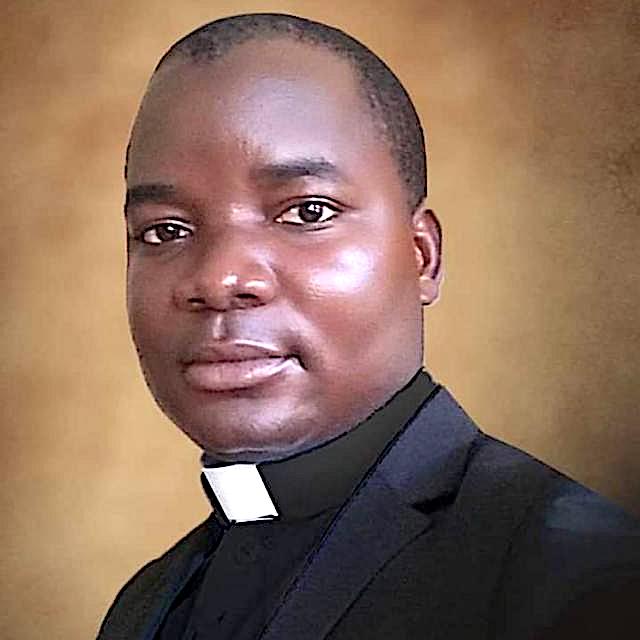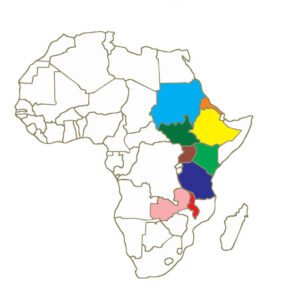MALAWI: Conversation on the Lenten Journey

Fr. Petros Chikayiko Mwale St. Cecilia Catholic Parish, Mpherembe, Mzuzu Diocese Credit: Malawi Communications
By Luke Chimwanza
Christians across the world have from last Wednesday, February 17 started Lenten Season which is generally known to be the time to remember the suffering and death of leader of Christianity in the world. LUKE CHIMWAZA engaged Reverend Father Petros Chikayiko Mwale, a Catholic Priest Currently serving at St. Cecilia Catholic Parish at Mpherembe in Mzuzu Diocese, Malawi.
What is Lent? And how long does it take?
The season of Lent is a Catholic liturgical season consisting of forty days of fasting, prayer, and penitence beginning at Ash Wednesday and concluding at sundown on Holy Thursday. Sundays in Lent are not considered part of the forty (40) days of the Lenten season and therefore one is not required to uphold one’s Lenten penitence. Sundays, even during Lent, are a celebration of the resurrection of Jesus Christ and are not part of the penitential season. We rejoice in the resurrection of the Lord on Sundays. A person is certainly free to continue one’s Lenten sacrifices on Sundays but the Catholic Church does not require anyone to do this.
Who is to observe Lent?
The Catholic Church, in an attempt to help Catholics do at least a minimum during Lent, asks all the faithful to fast and abstain from meat on certain days. Fasting means to limit food to one full meal a day with the possibility of two smaller meals (not adding up to a full meal) as needed. Abstinence means not eating meat, although fish is allowed. Catholics are required to observe all days of fasting and abstinence which is one of the precepts of the Church.
Those 14 years of age or older are to abstain from meat on Ash Wednesday and all the Fridays of Lent. Catholics between the ages of 16 and 59 are also to fast on Ash Wednesday and Good Friday. They may eat one full meal on these days, and two small meals to maintain strength. The two small meals together must not equal the size of one full meal. If one’s work or health make it inadvisable to fast or abstain from meat, they are not obligated to do so. This includes mental health. Fasting may be harmful for someone who struggles with an eating disorder. Such a person might do an alternate penance on the days of fasting. Expectant and nursing women are exempt from the fast.
On Ash Wednesday, Catholics are spread ash on forehead, why?
During the early days of the Church, public penitents looking for forgiveness and re-entry into the community would dress in sackcloth and sprinkle ashes to show their repentance (cf. Esther 4:2-3; Danie19:3; Jonah 3:6). Public penitents were those doing penance for sins such as murder, apostasy, and adultery. When they completed their public penance, they were able to be readmitted to communion with the Church. As Lent increasingly focused on the themes of repentance and renewal, Christians sensed their own need for repentance. Catholics don’t wear ashes to proclaim their holiness but to acknowledge that they are sinners who need repentance and renewal.
In the ecclesiastical teaching (law), Christians are advised to abstain from meat, why is it so and what does it mean in Christian life.
Abstinence laws consider that meat comes only from animals such as chickens, cows, sheep or pigs – all of which live on land. Birds are also considered meat. Abstinence does not include meat juices and liquid foods made from meat. Thus, such foods as chicken broth, consommé, soups cooked or flavored with meat, meat gravies or sauces, as well as seasonings or condiments made from animal fat are technically not forbidden. However, moral theologians have traditionally taught that we should abstain from all animal-derived products except foods such as gelatin, butter, cheese and eggs, which do not have any meat taste. Fish are a different category of animal. Salt and freshwater species of fish, amphibians, reptiles, (cold-blooded animals) and shellfish are permitted.
Abstaining from meat and other indulgences during Lent is a penitential practice. On the Fridays of Lent, we remember the sacrifice of Christ on Good Friday and unite ourselves with that sacrifice through abstinence and prayer.
In Lenten season, Christians conduct way of the cross especially on Fridays, what does Way of the Cross mean and why on Friday not the other days?
Stations of the Cross, also called The Way of the Cross, is presented in a series of 14 pictures or carvings portraying events in the Passion of Christ, from his condemnation by Pontius Pilate to his entombment. The images are usually mounted on the inside walls of a church or chapel but may also be erected in such places as cemeteries, corridors of hospitals and religious houses, or on mountain-sides.
This devotional exercise stems from the practice of early Christian pilgrims who visited the scenes of the events in Jerusalem and walked the traditional route from the supposed location of Pilate’s house to Calvary. This prayerful meditation through the Stations of the Cross is especially common during Lent and on Fridays throughout the year, in commemoration of Christ’s Crucifixion on Good Friday.

queue on Ash Wednesday
Apart from what you mentioned earlier, what are the do’s and don’ts in the Lenten season?
Apart from the prayer, fasting and arms-giving, Catholics have traditionally chosen additional penitential practices for the whole Season of Lent, like doing pilgrimages. These practices are disciplinary in nature and often more effective if they are continuous. That being said, such practices are not regulated by the Church but by individual conscience. Don’t use Lent as a weight loss regimen.
It is encouraged to give arms, forgive and pray during this season, how important are these?
Many Catholics were taught as children to “give up something” for Lent. The sacrifices in Lent are really penance, in the same spirit as the Ninevites that repented at the preaching of Jonah (Jonah 3:6). Throughout our history, Christians have found prayer, fasting, and almsgiving to be an important part of repentance and renewal. Many Catholics now add something during Lent rather than giving up something, either to address personal habits that need work or to add some outreach to others in need.
A good practice is to do something extra in prayer, something involving fasting (whether limiting our intake of food or giving up something non-food related), and something involving almsgiving (giving money or goods to the needy or doing extra acts of charity).
Is it true that the Church requires married couples abstain from sexual enjoying their conjugal rights during Lent?
The Church doesn’t have an official teaching on married couples abstaining from sex during Lent. St. Paul the Apostle endorsed the practice of a temporary celibacy to engage in a special spiritual discipline of increased prayer. “Do not deprive each other, except perhaps by mutual consent for a time, to be free for prayer, but then return to one another, so that Satan may not tempt you through your lack of self-control,” we read on 1 Corinthians 7,5.
It is very important to note that sexual intercourse is a gift to those in marriage; it is sinful when done outside marriage. It is thus important that the decision to refrain from the marital act as an act of penance be made mutually.


